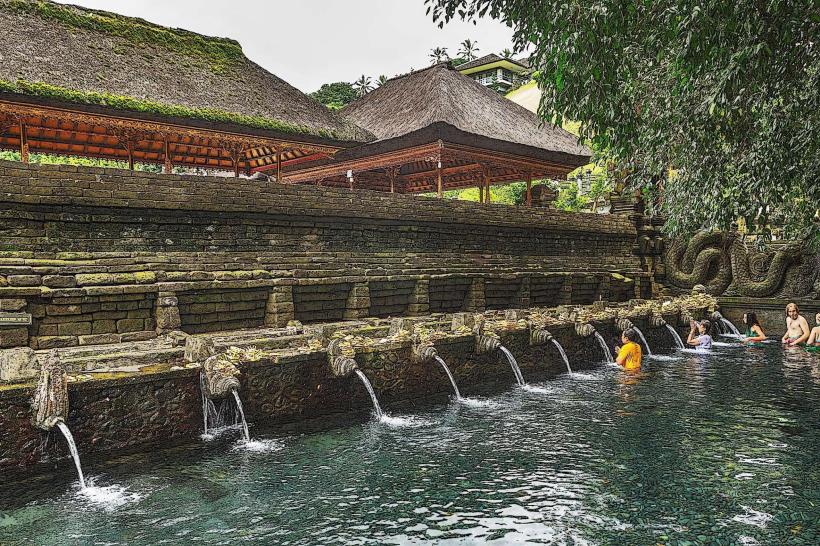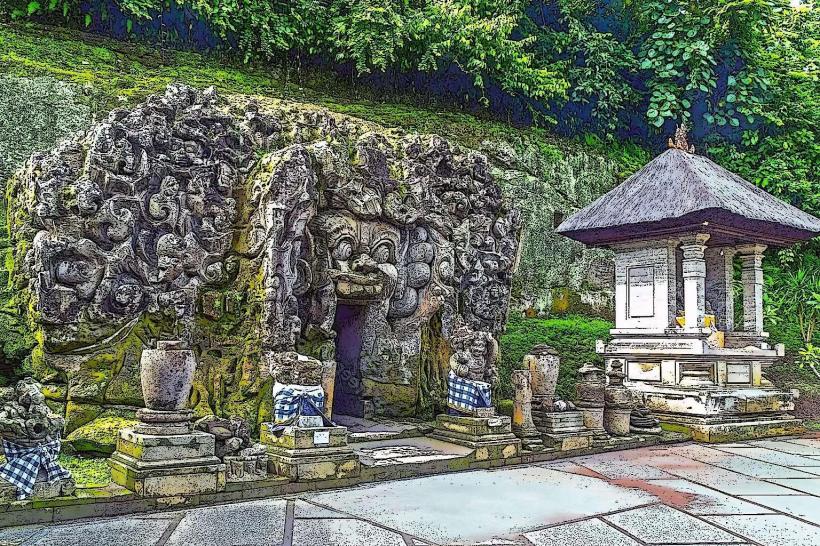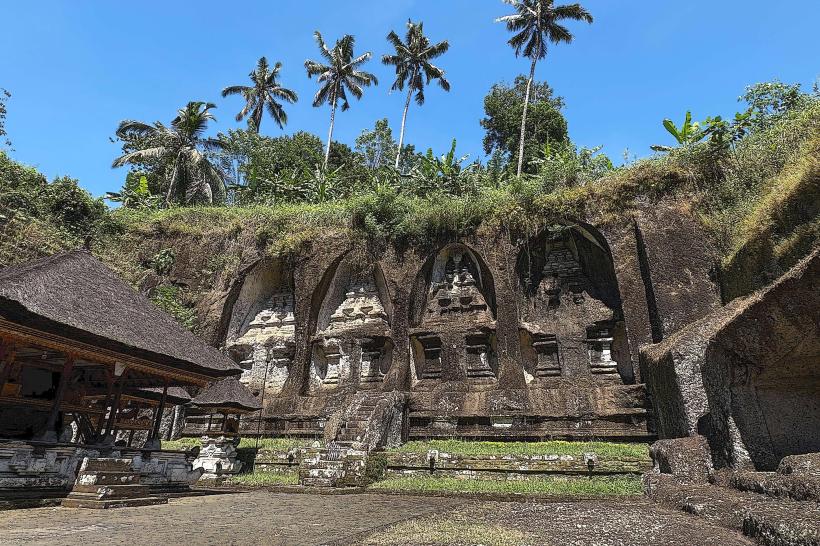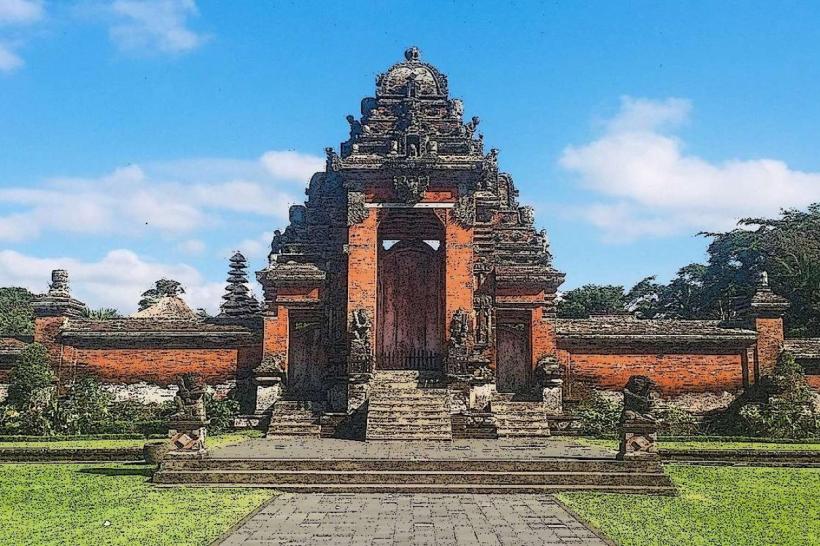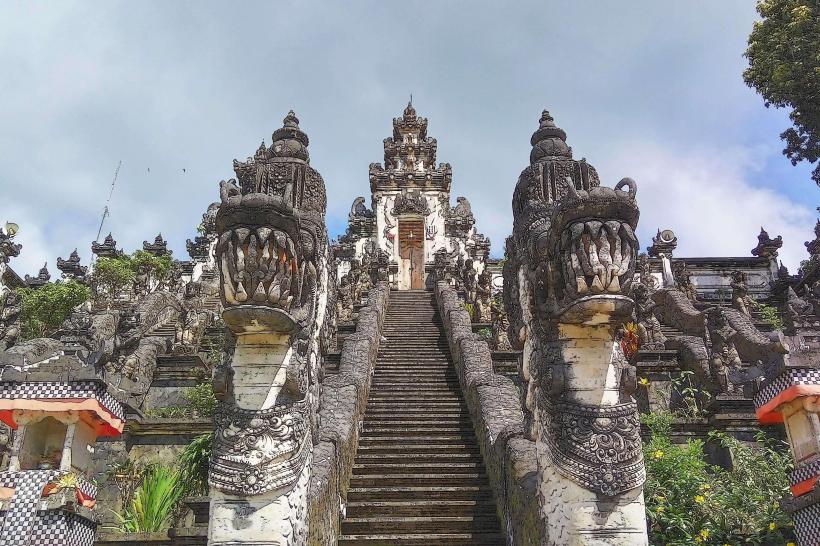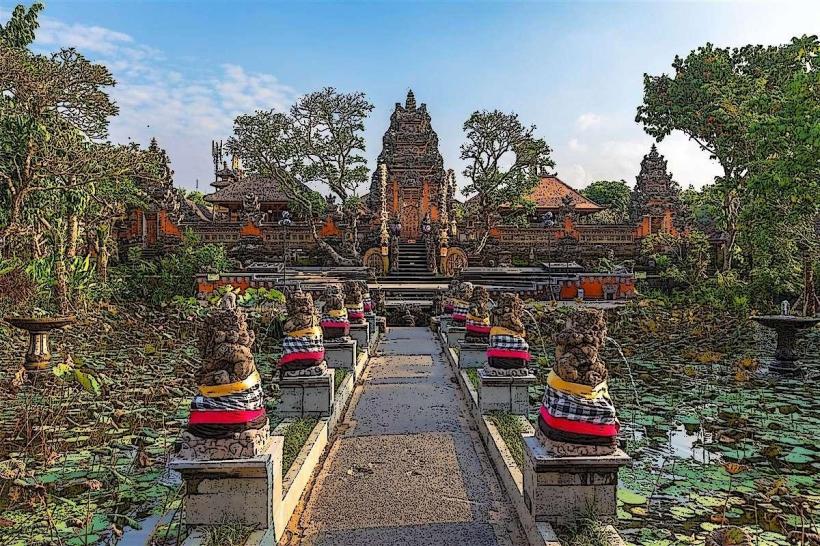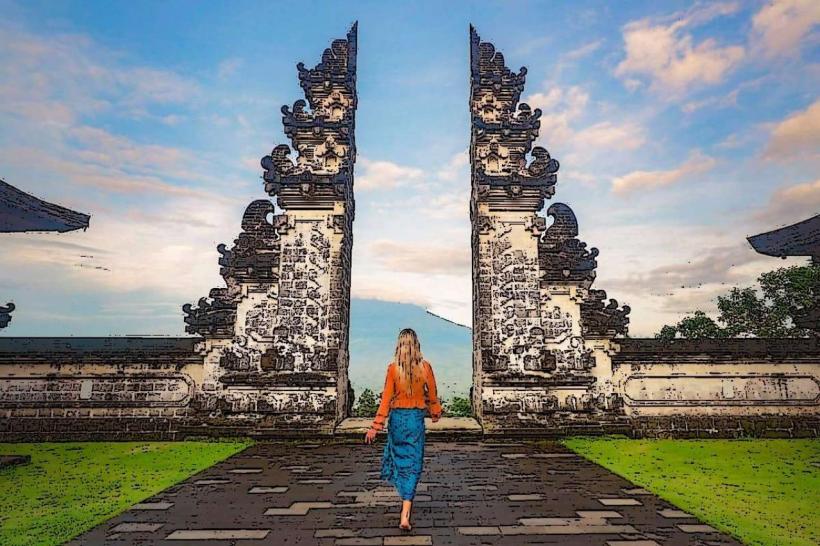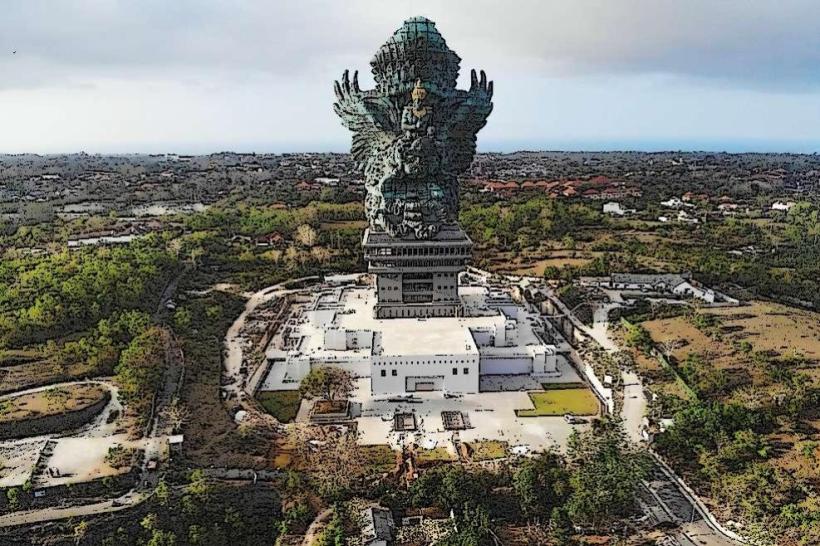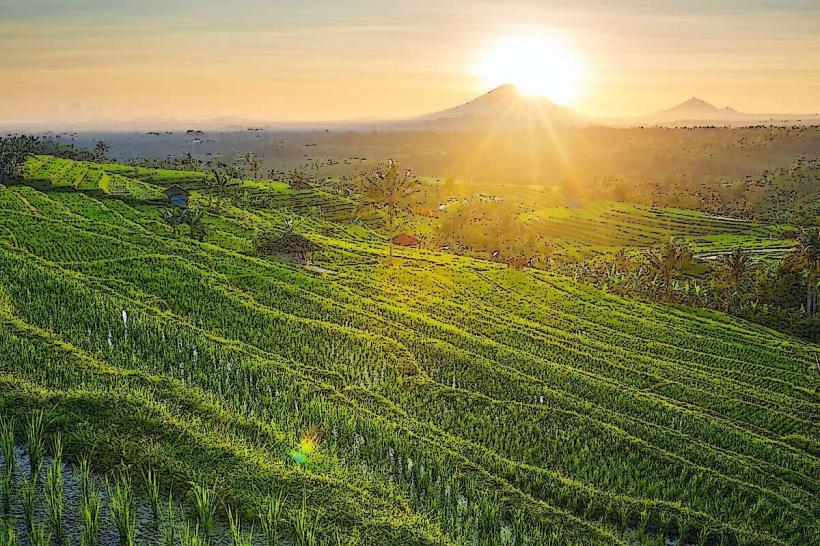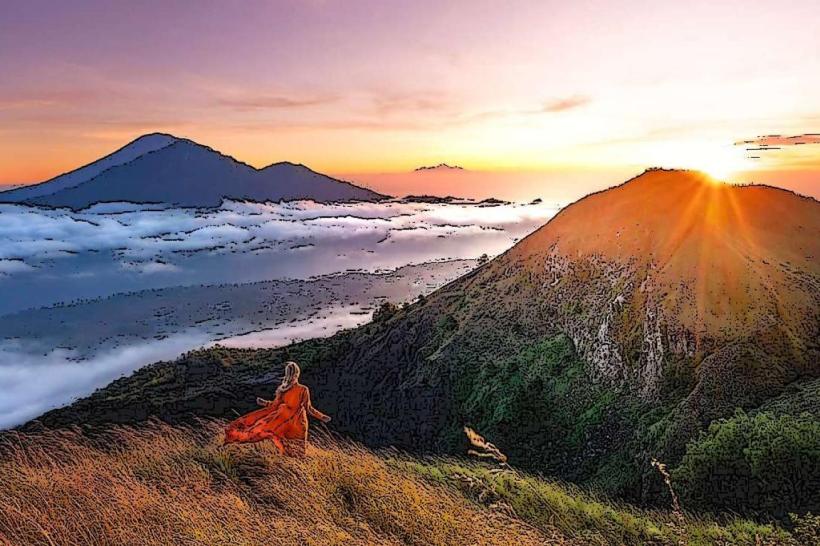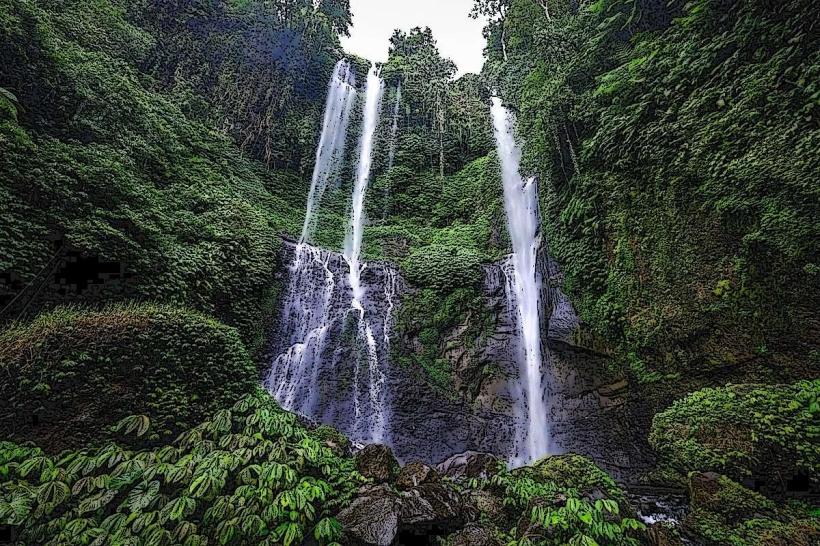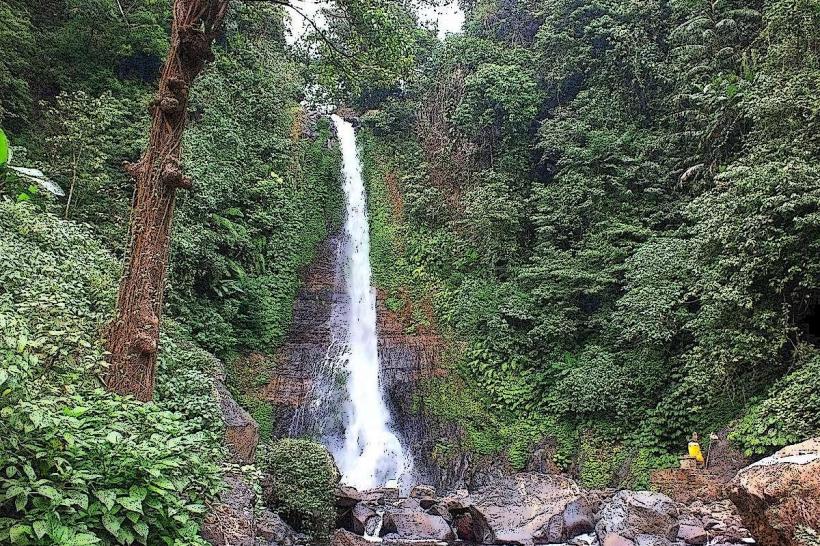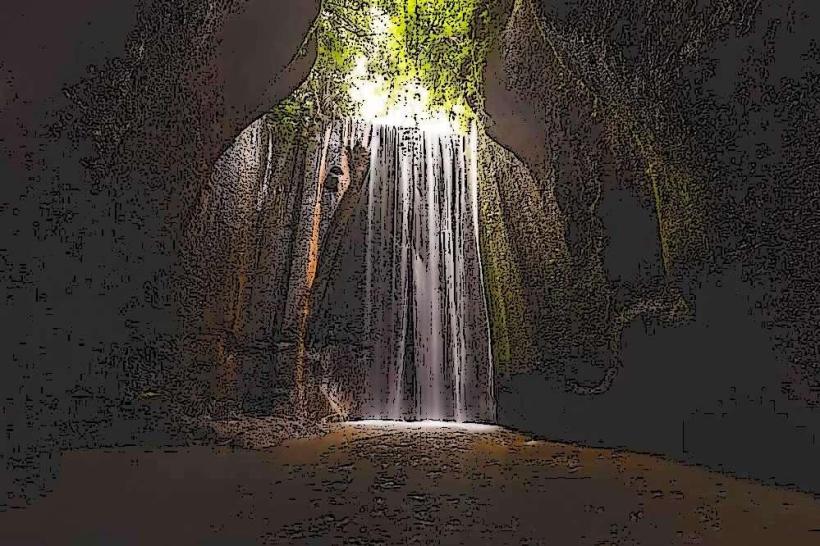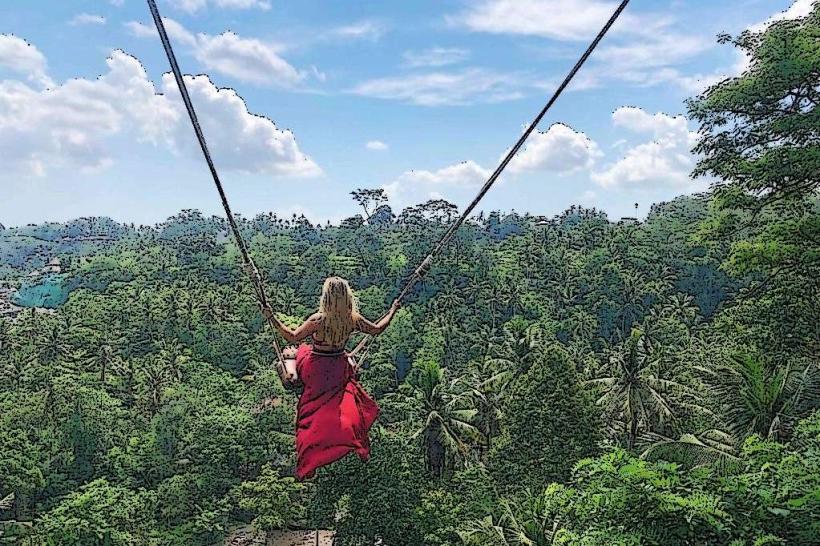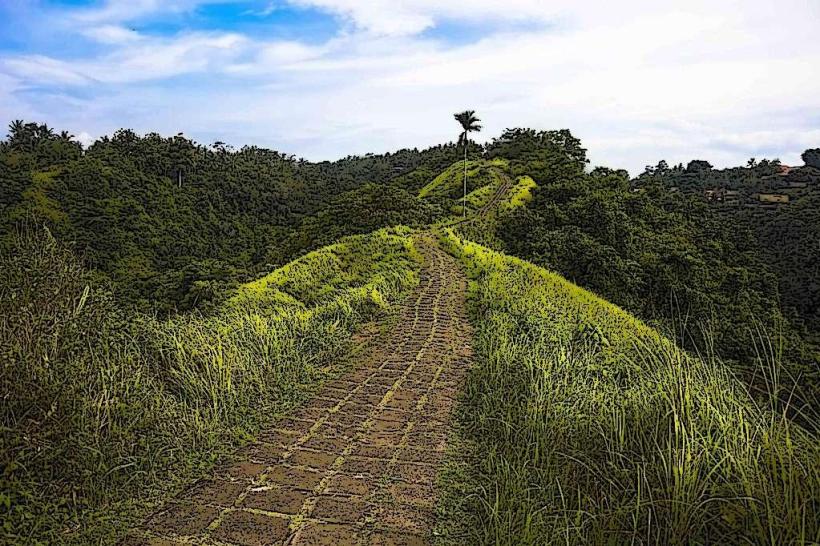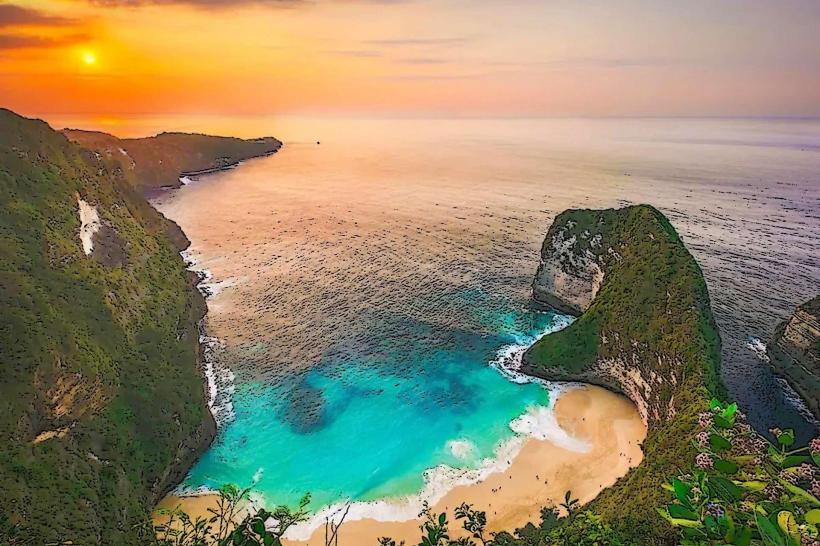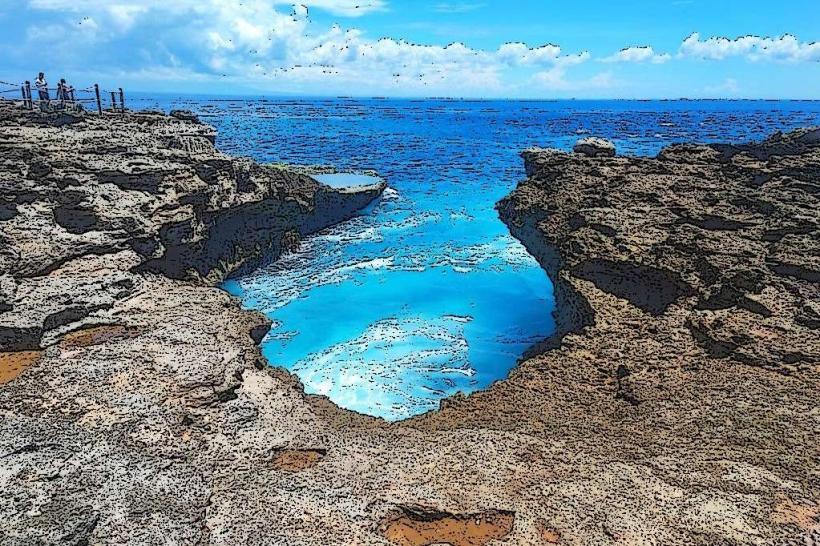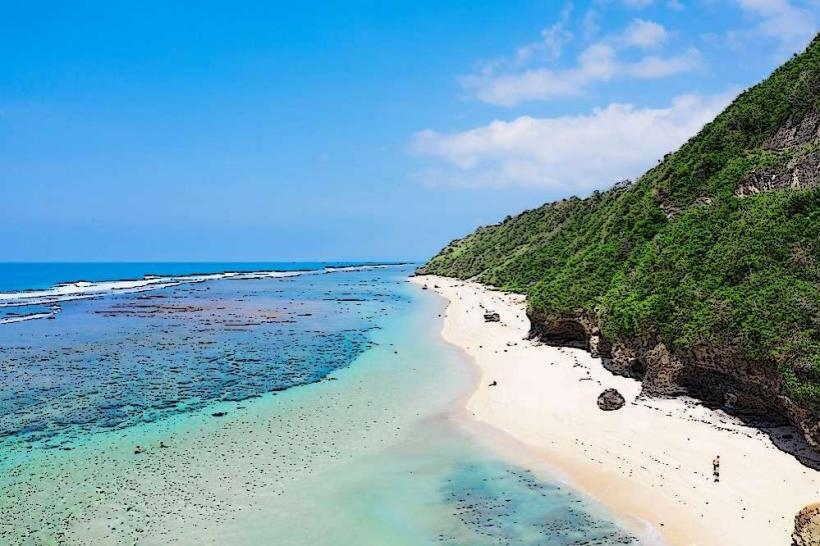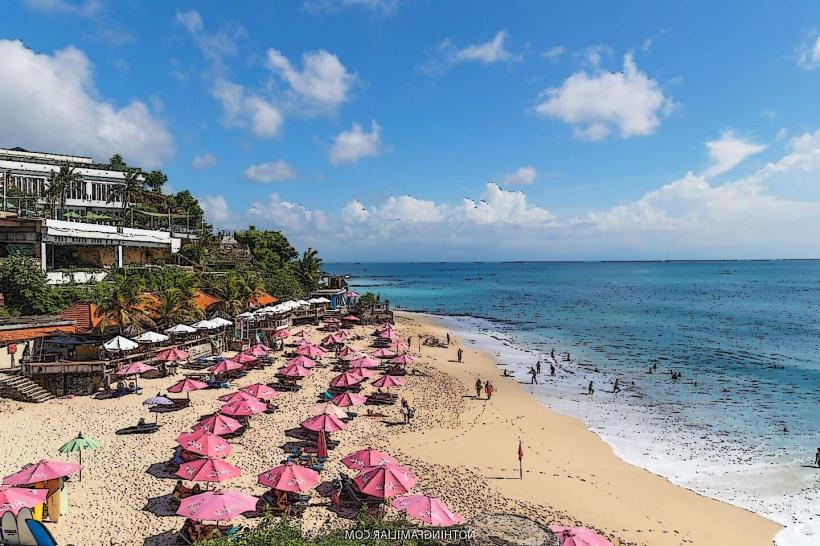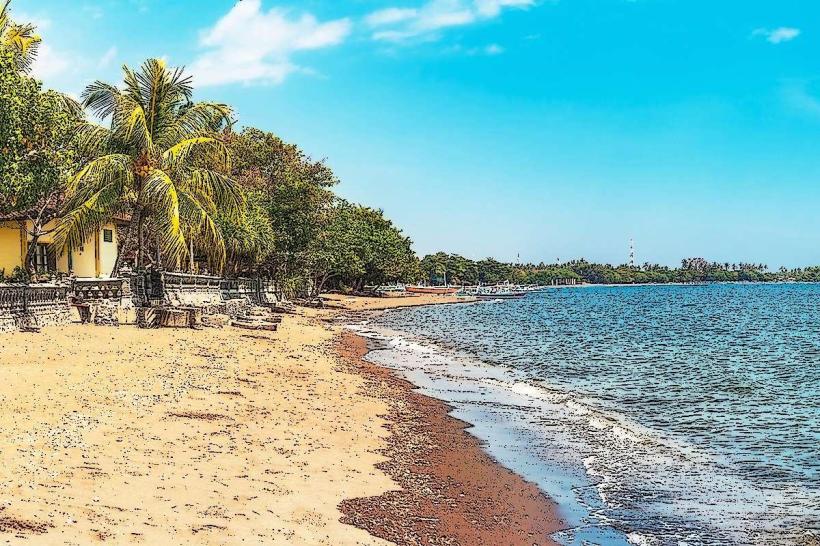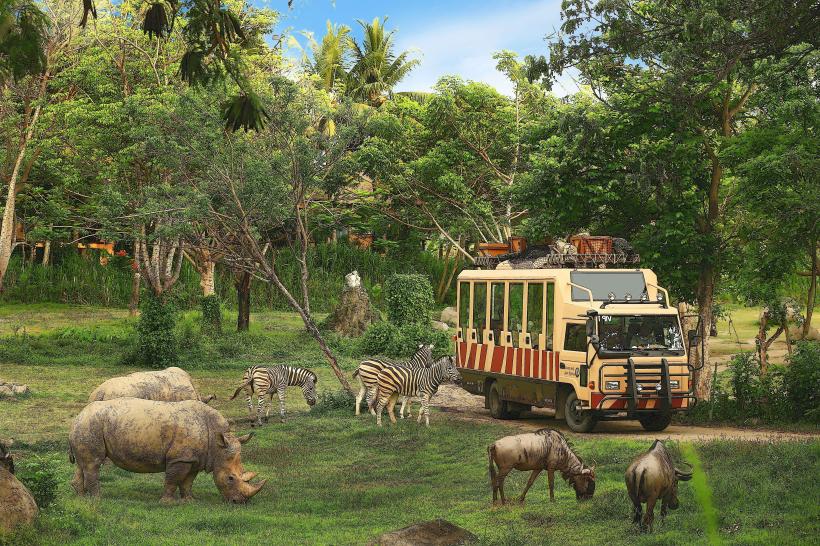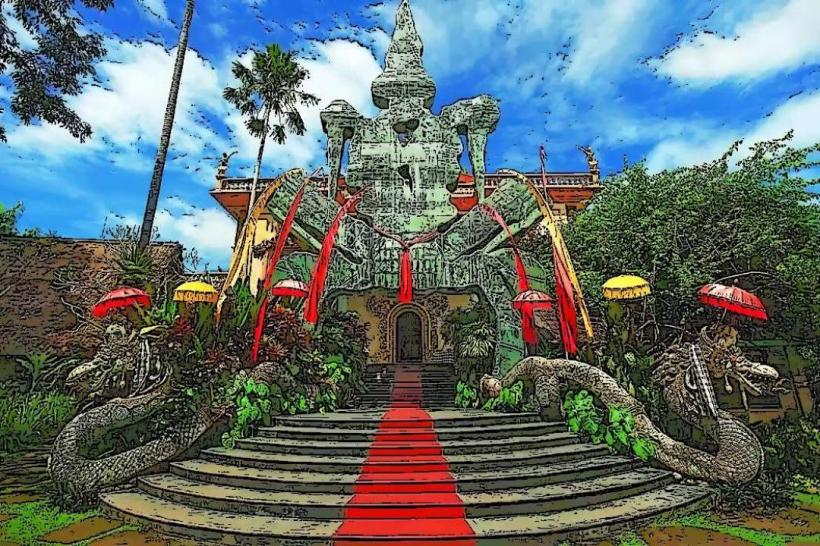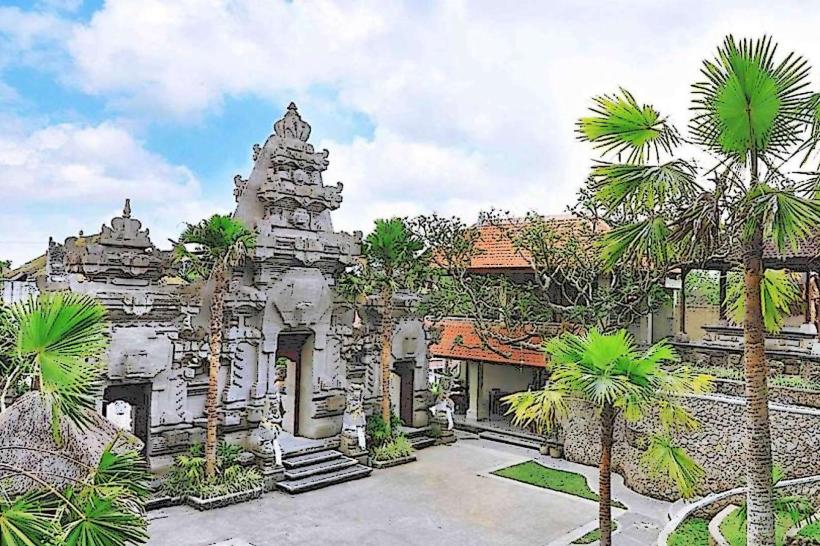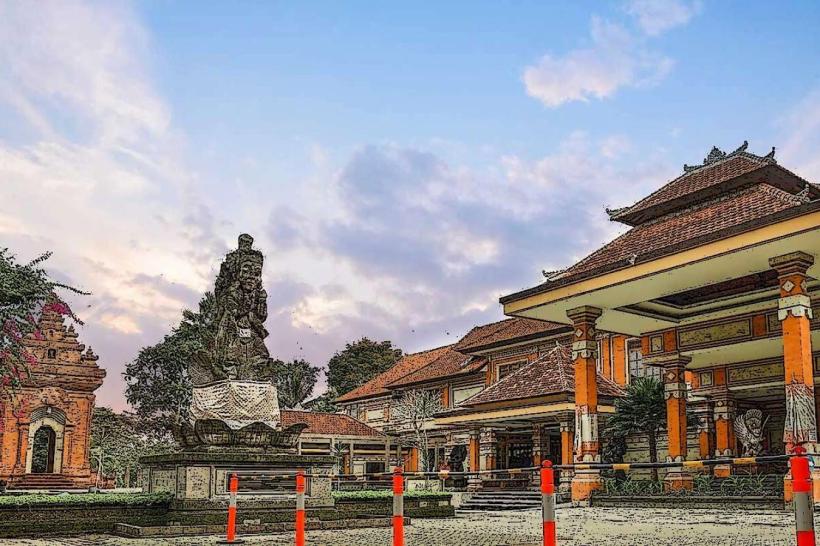Information
Landmark: Ulun Danu Beratan TempleCity: Bali
Country: Indonesia
Continent: Asia
Ulun Danu Beratan Temple, Bali, Indonesia, Asia
Ulun Danu Beratan Temple – In Detail
Location:
Ulun Danu Beratan Temple (Pura Ulun Danu Bratan) is situated in the central highlands of Bali, specifically in Candikuning village, Baturiti District, Tabanan Regency. It rests on the western shore of Lake Beratan in the mountainous area of Bedugul, approximately 1,200 meters (3,900 feet) above sea level. This altitude provides a cool climate, often misty, which enhances the temple's mystical atmosphere.
Historical Background
Construction and Origins:
The temple was established in 1633 by I Gusti Agung Putu, the King of the Mengwi Kingdom. It was constructed as a site of worship dedicated to Dewi Danu, the goddess of lakes and water, a vital force for irrigation in Bali's agrarian society. Its location next to Lake Beratan is not symbolic-this lake is a primary source of irrigation for the surrounding rice terraces and farms.
Religious Importance:
Ulun Danu Beratan Temple is a major water temple in Bali’s unique subak irrigation system-a traditional water management method recognized by UNESCO. This system reflects the Balinese philosophy of Tri Hita Karana-harmony among humans, nature, and the spiritual realm. Worship at this temple is meant to ensure prosperity, fertility, and harmony through divine water blessings.
Layout and Architecture
Temple Grounds:
The temple complex is divided into several sections with tiered courtyards. Each courtyard represents a step closer to the divine:
Jaba Pisan (Outer Courtyard): The entrance area used for non-religious gatherings.
Jaba Tengah (Middle Courtyard): Used for ceremonial preparation.
Jeroan (Inner Courtyard): Reserved for prayer and sacred rituals, containing the main shrines.
Meru Shrines:
The temple features a series of multi-tiered thatched-roof towers called merus, constructed using black palm fiber. Notable ones include:
An 11-tiered Meru for Shiva and Parvati (symbolizing divine masculine and feminine energies).
A 7-tiered Meru for Brahma.
A 3-tiered Meru for Vishnu.
Each meru has an odd number of tiers, a characteristic of Balinese sacred architecture believed to ward off evil spirits and invite harmony.
Floating Illusion:
One of the smaller shrines appears to be floating on the lake when the water level rises, especially during the rainy season. This striking image-temple spires reflected on the still water with misty mountains behind-has become one of Bali’s most iconic scenes.
Sacred Components
Pelinggih-Pelinggih:
These are small shrines dedicated to various gods and ancestral spirits. Several are constructed on separate islets and are reached by stone paths or viewed from the lakeshore.
Stupa:
A small Buddhist stupa is also found within the temple complex, highlighting Bali’s historical religious tolerance and syncretism between Hinduism and Buddhism.
Padmasana:
The main seat of worship-a towering lotus throne dedicated to Sang Hyang Widhi Wasa, the supreme Balinese god-is also present. This symbolizes the unifying principle of all deities.
Cultural and Spiritual Life
Ceremonies and Festivals:
The most important ritual is Piodalan, celebrated every 210 days (based on the Pawukon calendar). During this time, the temple is decorated, offerings are abundant, and traditional gamelan music and dances are performed.
Locals come in traditional attire to pray, bringing colorful offerings that line the stone altars and temple entrances.
Pilgrimage Site:
Ulun Danu Beratan is not just a tourist attraction-it remains an active spiritual site visited by Balinese people seeking blessings for agricultural success, fertility, and balance in life.
Natural Setting
Lake Beratan:
Lake Beratan is a volcanic caldera lake known for its calm, glassy waters and cool atmosphere. It is Bali's second-largest lake and is critical to local agriculture.
Surrounding Landscape:
The temple is encircled by lush forests and misty hills, especially in the early morning and late afternoon. The surrounding **mountains-Mount Catur and others-**enclose the lake, creating a scenic, tranquil basin ideal for spiritual reflection.
Visitor Experience
Opening Hours:
Typically open from 7:00 AM to 7:00 PM, though ceremonies may restrict certain areas temporarily. Mornings are generally best for peaceful visits and photography.
Entrance Fee:
Foreign visitors usually pay around IDR 50,000 (~$3–$4 USD). Small additional fees apply for parking or boating.
Dress Code:
Modest attire is required. Visitors are expected to wear a sarong and sash, often provided at the entrance. Shoulders and knees should be covered, and respectful behavior is expected on the premises.
Activities and Attractions Nearby
Boat Rides:
Visitors can rent a traditional wooden boat or motorized canoe to view the temple from the water. Early morning rides are especially serene and great for photography.
Bali Botanical Garden (Kebun Raya Eka Karya):
Located nearby, this is the largest botanical garden in Indonesia, featuring tropical plants, orchids, bamboo groves, and a treetop walkway.
Candikuning Market:
A local market selling fresh strawberries, vegetables, flowers, herbs, and Balinese souvenirs. It’s a great stop for tasting local produce and engaging with rural culture.
Strawberry Farms:
Several pick-your-own strawberry farms operate in Bedugul due to the cooler climate. They’re family-friendly and offer fresh strawberry treats.
Photography and Best Time to Visit
Golden Hour: Early morning or late afternoon provides the best lighting, misty conditions, and fewer tourists.
Rainy Season (Nov–Mar): The lake level is higher, enhancing the “floating” illusion.
Dry Season (Apr–Oct): Clear skies offer better visibility but sometimes less dramatic reflections.
Tips:
Use reflections for symmetry shots.
Frame your shot with flowers or prayer structures.
Experiment with long exposures to blur water for a silky effect.
Summary
Ulun Danu Beratan Temple is a sacred, photogenic, and culturally significant site set amidst the natural beauty of Bali’s highlands. It reflects the Balinese blend of spirituality, architecture, and harmony with nature. The temple is not just a visual icon but a vital part of Bali’s cultural and religious landscape, supporting both prayer and agriculture. Whether you're a spiritual seeker, nature lover, or photographer, it offers a deeply enriching experience.

